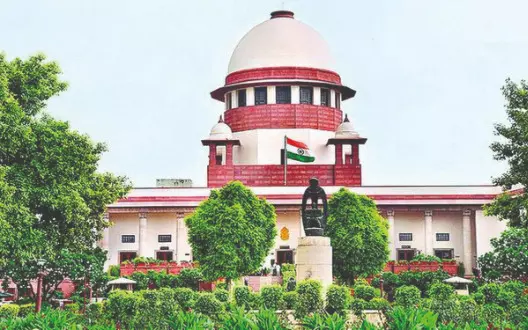MHA to seek review of SC verdict on Prez’s Bill decision deadline

NEW DELHI: The Union Ministry of Home Affairs (MHA) is in the process of drafting a review petition challenging the Supreme Court’s April 8 judgment in a case involving the Tamil Nadu government and Governor RN Ravi, according to government sources.
Officials involved in the matter said the ministry had identified legal concerns in the ruling, particularly a clause that requires the President of India to make a decision on state Bills forwarded by governors within a three-month period. “This has a direct bearing on the functioning of the MHA, which handles communication between the President and the states in such cases,” a senior official said.
They further pointed out that the ruling could pave the way for Bills previously deemed to have lapsed to be considered active again. “Once the President declines assent, the Bill is no longer valid unless reintroduced
in the legislature, either in its original form or incorporating suggested changes. This judgment could alter that understanding,” said another official.
The Centre is also reportedly concerned that its perspective on the constitutional implications of the case did not receive sufficient consideration during the court hearings. “Certain procedural and legal aspects relating to the Centre’s role in the legislative process of states could not be thoroughly put forth,” a source familiar with the discussions noted.
Under Article 201 of the Constitution, the MHA is responsible for facilitating the President’s decision on state Bills and relaying it back to the concerned state governments. Officials said the ministry views the Supreme Court’s directive as affecting this mechanism.
The grounds on which the review petition will be filed are being considered and will be known once the government approaches the apex court.
If the government approaches the Supreme Court, the review petition will have to be filed before the same bench of Justices J B Pardiwala and R Mahadevan that pronounced the verdict, the sources said. The Tamil Nadu government had approached the apex court after the governor kept 10 Bills passed by the state legislature pending, some of them for several years. Following the court’s judgment, the state published these laws in its official gazette on Saturday, treating them as having received assent. The Supreme Court had invalidated the governor’s move to reserve the Bills for the President, calling it beyond constitutional limits. A bench of Justices JB Pardiwala and R Mahadevan held that governors must act within specified conditions and ruled that the re-submitted Bills would be considered approved under Article 142. The verdict also allows states to seek redress from the Supreme Court if the President’s assent is withheld.
Without mincing words, the court said that “where the Governor reserves a Bill for the consideration of the President and the President in turn withholds assent thereto then, it shall be open to the State Government to assail such an action before this Court”.
The Supreme Court set timelines and said failure to comply with them would make the inaction of the governors subject to judicial review by the courts.
“In case of either withholding of assent or reservation of the Bill for the consideration of the President, upon the aid and advice of the State Council of Ministers, the Governor is expected to take such an action forthwith, subject to a maximum period of one month,” the court said.
Justice Pardiwala, writing the judgement for the bench, dealt and delivered findings on the judicial review of the exercise of power by the Governor under Article 200 and by the President under Article 201 of the Constitution.
Article 200 deals with situations related to the passage of Bills by the state assembly and subsequent options available to the governor on the grant of assent or withholding of assent or sending the Bill to the President for reconsideration.
Article 201 deals with the Bills reserved for the President’s consideration by the governor.
“There is no expressly specified time-limit for the discharge of the functions by the Governor under Article 200 of the Constitution. Despite there being no prescribed time-limit, Article 200 cannot be read in a manner which allows the Governor to not take action upon Bills which are presented to him for assent and thereby delay and essentially roadblock the law-making machinery in the State,” the bench said.
The court referred to various situations and held that the actions of governors and the President regarding state legislation are subject to judicial scrutiny under certain circumstances.
“There is no ‘pocket veto’ or ‘absolute veto’ available to the President in discharge of his functions under Article 201. The use of the expression ‘shall declare’ makes it mandatory for the President to make a choice between the two options available under the substantive part of Article 201, that is, to either grant assent or to withhold assent to a Bill.



